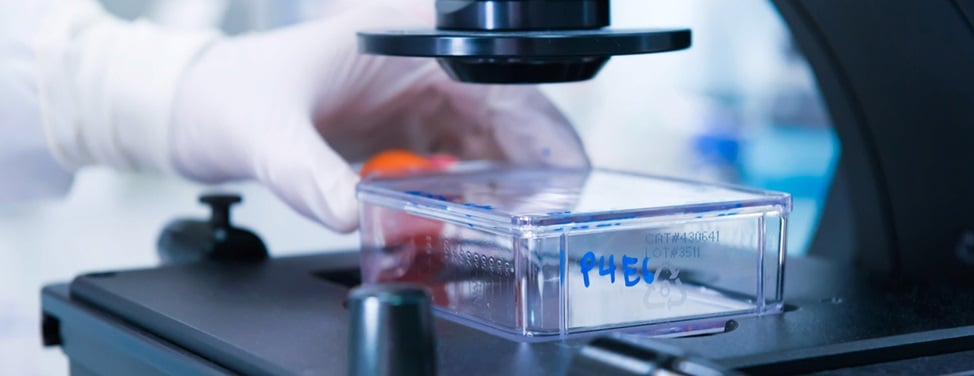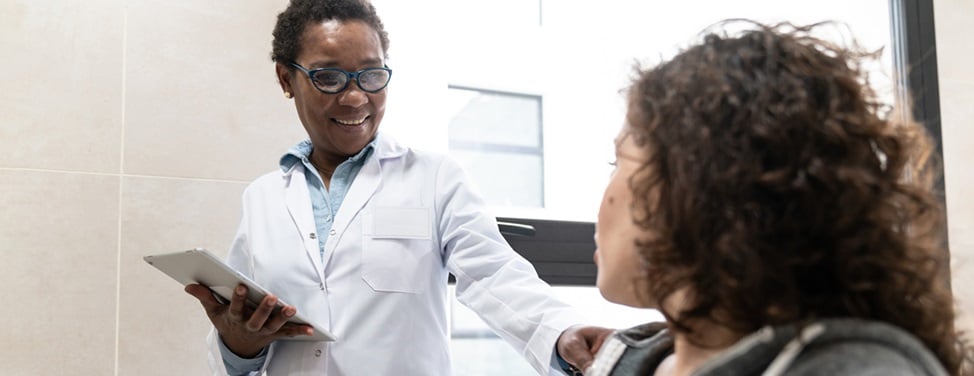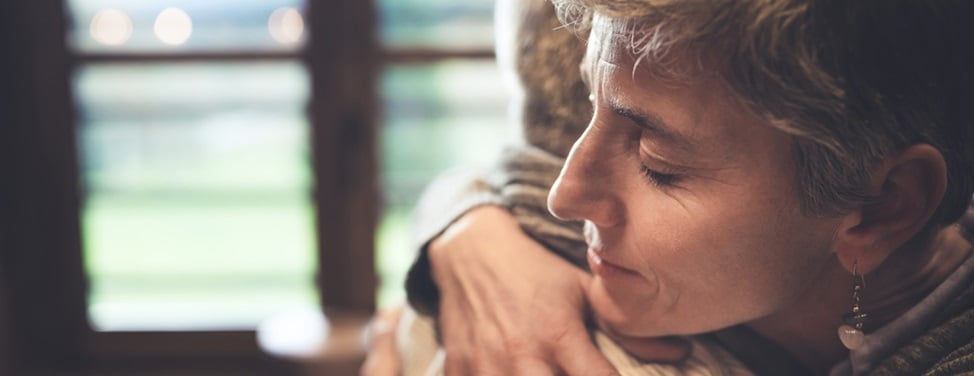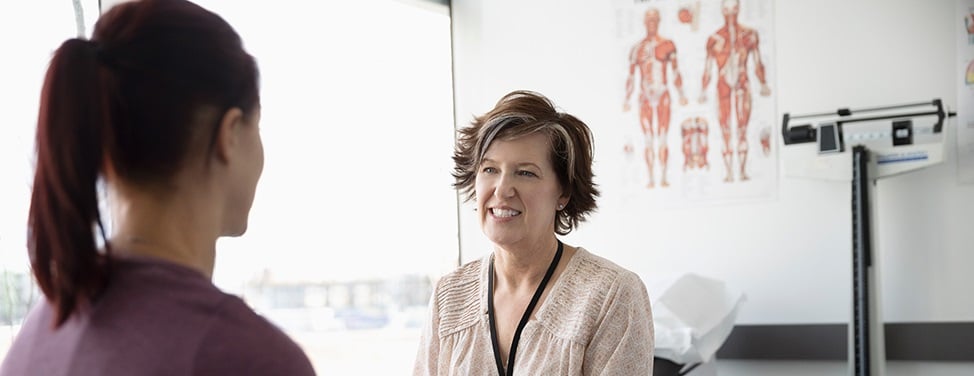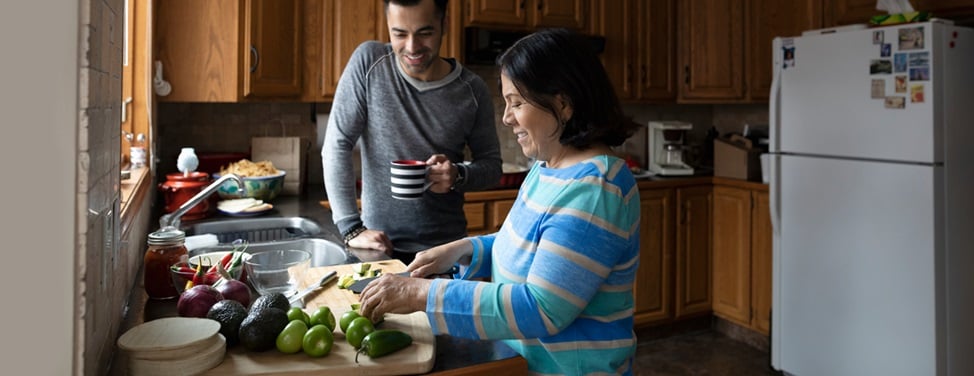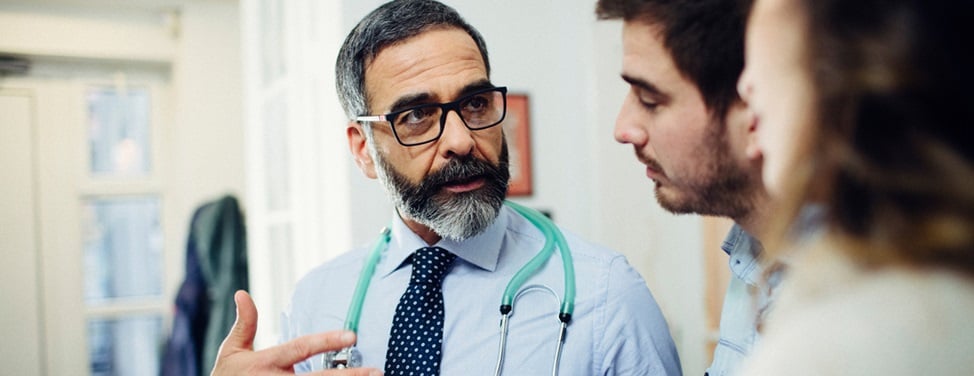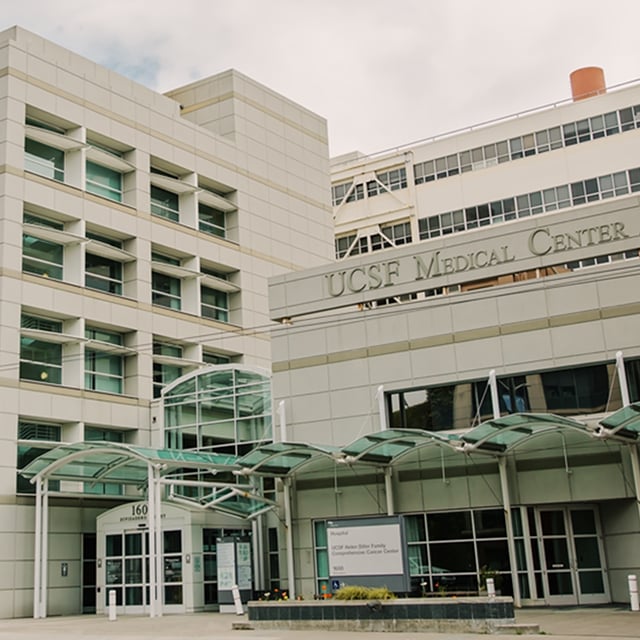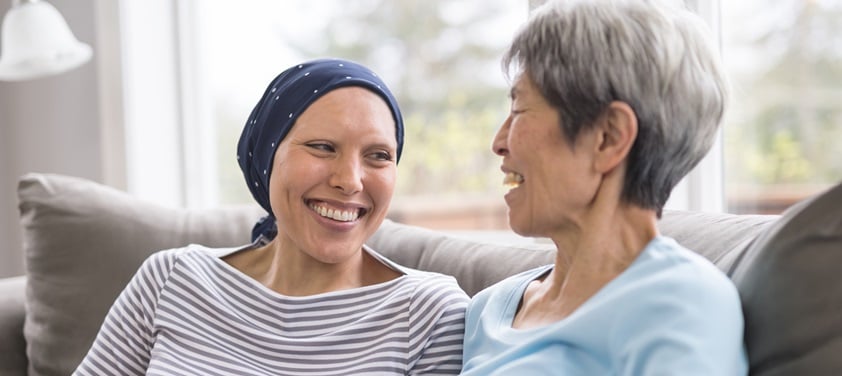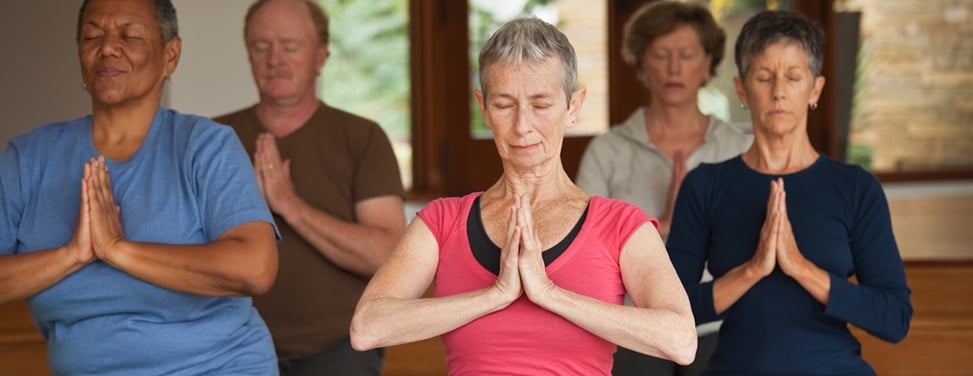Throat Cancer

Overview
Cancers that involve the throat, base of the tongue, tonsil, pharynx, or tube that extends from the nasal passages to the mouth to the esophagus and sinus are called oropharyngeal and hypopharyngeal cancers.
Risk factors for developing throat cancer may include:
- Smoking tobacco
- Heavy alcohol use
- A diet low in fruits and vegetables
- Drinking maté, a stimulant drink common in South America
- Chewing betel quid, a stimulant commonly used in parts of Asia
- Being infected with human papillomavirus (HPV)
Our Approach to Throat Cancer
UCSF offers cutting-edge diagnostic and treatment options for throat cancer, delivered in a comfortable and supportive environment. Our goal is to treat the cancer while preserving speech and swallowing functions as much as possible.
To achieve the best outcome for each patient, our team includes a wide range of specialists. These include head and neck surgeons, otolaryngologists, medical oncologists, reconstructive surgeons and radiation oncologists, as well as experts in speech-language pathology, nutrition and psycho-oncology.
Awards & recognition
-
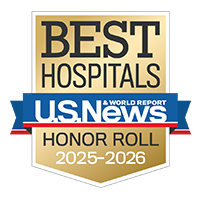
Among the top hospitals in the nation
-
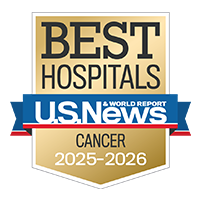
Best in California and No. 7 in the nation for cancer care
-

One of the nation's best for ear, nose & throat care
-
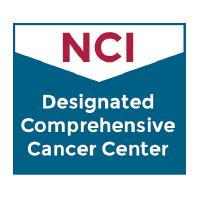
Designated comprehensive cancer center
Signs & symptoms
Symptoms of throat cancer may include:
- A sore throat that does not go away
- Cough
- Pain or difficulty swallowing
- Weight loss for no known reason
- Ear pain
- A lump in the back of the mouth, throat or neck
- Advanced tumors may invade the voice box, causing hoarseness or breathing difficulty
- Bleeding from the throat or blood-tinged sputum
Diagnosis
In making a diagnosis of throat cancer, your doctor will start by recording your medical history, asking about any symptoms you may be experiencing and conducting a thorough physical examination. Your doctor may also may recommend one or more of the following diagnostic tests:
- Endoscopy This test is performed in the operating room with general anesthesia to determine the extent of the tumor. During the procedure, the upper portion of the gastrointestinal tract and respiratory tract are visualized with endoscopes, which are long, thin and flexible tubes equipped with a tiny video camera and light on the end. The endoscope is used to look at areas in the throat and respiratory tract that cannot be seen during a physical exam. Other areas examined include the esophagus, trachea and bronchi of the lungs. The endoscope has a channel that allows instruments to be passed through in order to take tissue samples. By adjusting the various controls on the endoscope, the doctor can safely maneuver the instrument to carefully examine the inside lining of the upper portion of the gastrointestinal tract and respiratory tract. The high-quality picture from the endoscope is shown on a TV monitor. In many cases, endoscopy is a more precise examination than X-ray studies.
- Imaging Tests Your doctor may also recommend imaging tests, such as a computed tomography (CT) scan, positron emission tomography (PET) scan, or magnetic resonance imaging (MRI), which provide additional information regarding the stage of the tumor and whether the cancer has spread to surrounding lymph nodes in the neck or elsewhere in the body.
Treatments
Surgery
Before having surgery, your doctor will discuss the procedure with you in detail and discuss any possible side effects.
If the tumor is small and localized, surgery will often successfully remove the tumor with few side effects. However, if the tumor is advanced and has spread to surrounding areas, surgery will be more extensive and may involve the removal of parts of your throat, mouth, jaw or voice box. In these cases, your ability to speak, chew, swallow and breathe may be affected.
Reconstructive surgery can help restore your appearance and rehabilitate speech and swallowing function. Prosthetic devices in your mouth may replace removed portions of your teeth, gums and jaw. In more advanced cases, you may need to use tubes for feeding and breathing and an artificial voice aid for speaking.
You will also work with a speech-language pathologist to assist you with problems related to speaking and swallowing. In addition, you may work with a dietitian who will help you develop a nutritional plan that includes healthy foods that are easy to swallow and chew.
Radiation Therapy
Radiation therapy can be used for select small tumors as primary treatment. It is also administered following surgery or in combination with chemotherapy for advanced tumors.
Chemotherapy
Chemotherapy is the use of drugs to kill cancer cells. Researchers are looking for effective drugs or drug combinations to treat throat cancer. They are also exploring ways to combine chemotherapy with other forms of cancer treatment to help destroy the tumor and prevent the disease from spreading.
For advanced tumors, chemotherapy is often given in combination with radiation therapy, typically in the setting of a therapeutic clinical trial.
UCSF Health medical specialists have reviewed this information. It is for educational purposes only and is not intended to replace the advice of your doctor or other health care provider. We encourage you to discuss any questions or concerns you may have with your provider.
More treatment info
-

Brachytherapy (HDR & LDR)
Radioactive material is placed inside a tumor or very close to it to treat the tumor and spare healthy tissue.
Learn more -
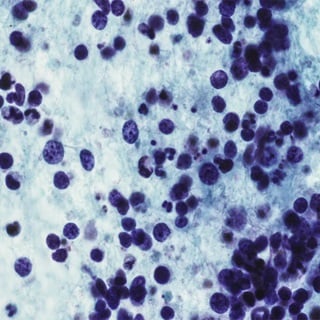
Intensity-modulated radiation therapy (IMRT)
The advanced technique focuses strong radiation on the tumor and spares surrounding healthy tissue.
Learn more
Recommended reading
Where to get care (3)
Related clinics (4)
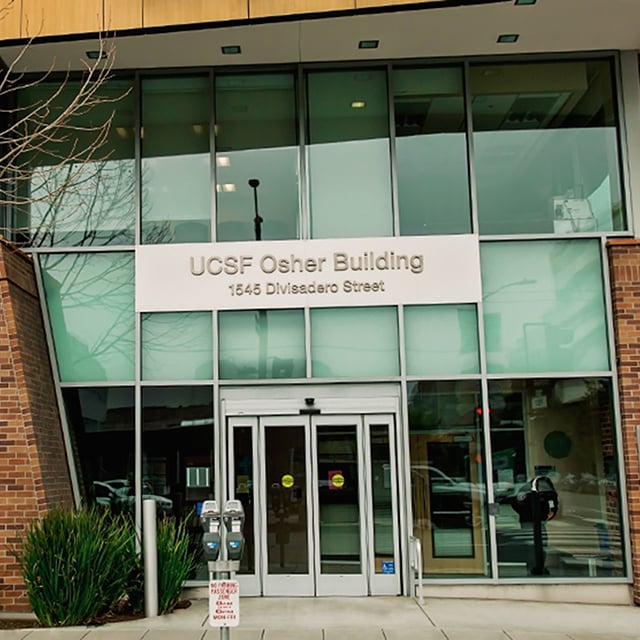
Osher Center for Integrative Health
 2
2






